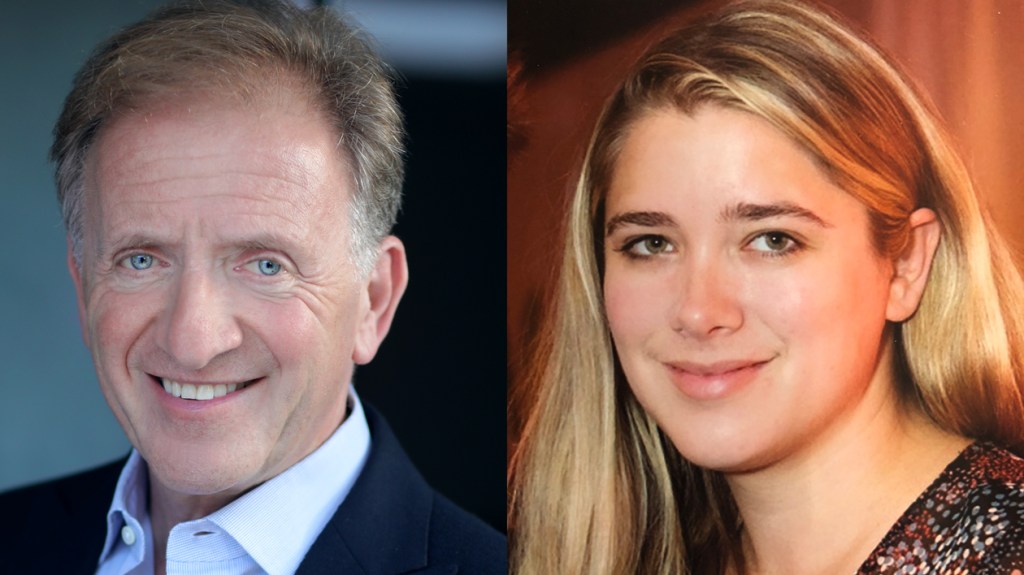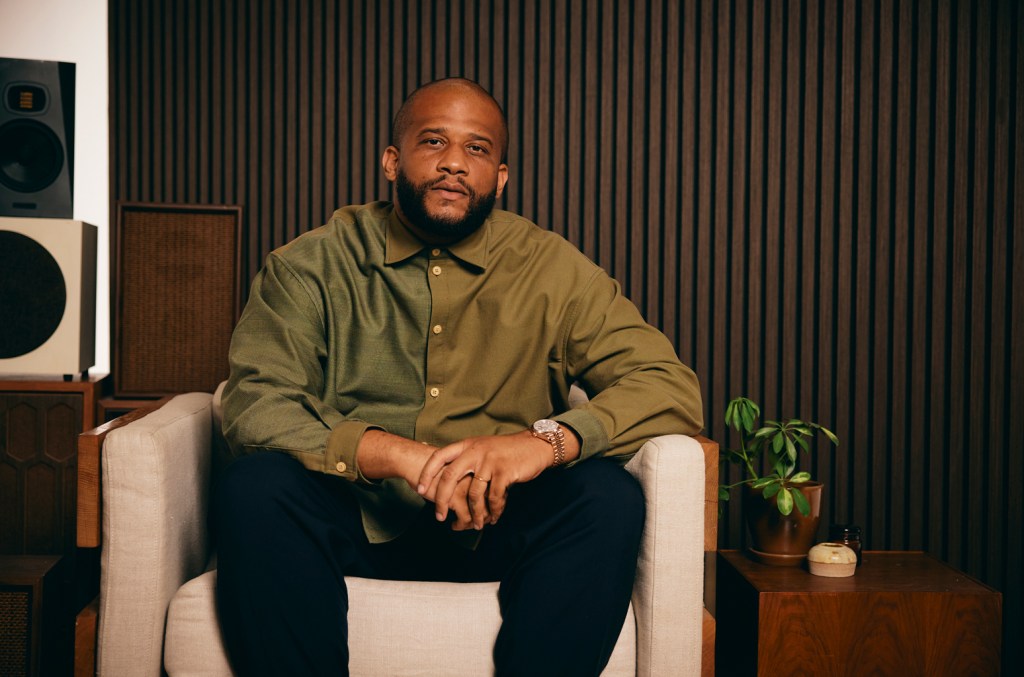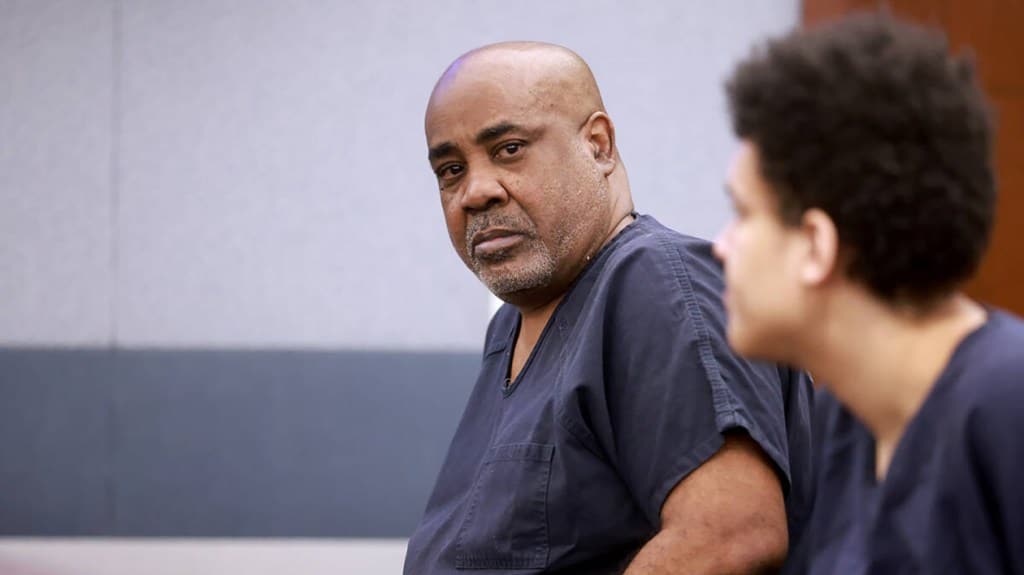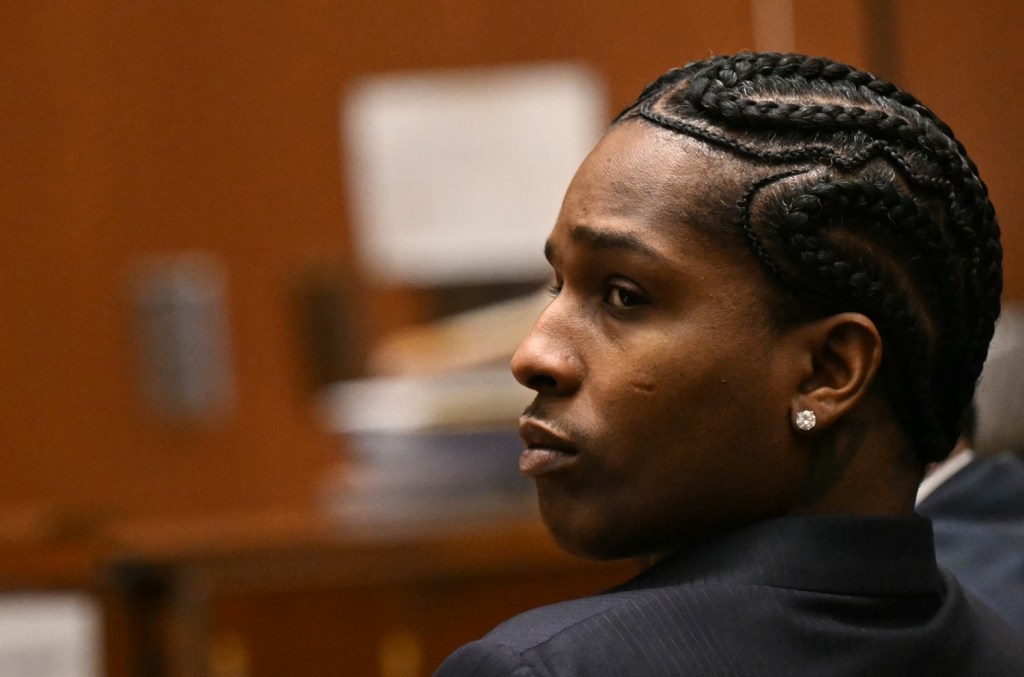Business
Page: 120
The Red Hot Chili Peppers‘ recorded masters catalog is up for sale, and sources say the band is seeking upwards of $350 million from suitors. The catalog includes such hit songs as “Under The Bridge,” “Dani California,” “Snow (Hey Oh), “Californication,” “Otherside,” “Can’t Stop” and “Give It Away.”
Sources say the band owns the 13 studio albums and other releases issued by the Warner Music Group (WMG) in the U.S. Billboard couldn’t determine if the band also owns its first four studio albums, which were issued through EMI in the U.S., although one source says they do. Whatever rights the band owns in those EMI records, those rights are also a part of what’s being offered for sale, sources say.
Billboard estimates that the Red Hot Chili Peppers master recording catalog generates about $26 million in revenue annually, with the bulk of that coming from the WMG portion of the catalog and about $1 million in revenue coming from the EMI portion. While some sources suggest that a potential deal for the recorded music assets has already been reached and that WMG is the most likely buyer, other sources say a deal has yet to be struck.
Trending on Billboard
The news comes four years after the band sold its music publishing to Hipgnosis for about $140 million to $150 million. That means that if the Red Hot Chili Peppers realizes its $350 million asking price for the recorded music catalog, it will have snared about $500 million for selling its music assets. Sources say Eric Greenspan of the law firm Wyman Greenspan Fox Rosenberg Mobster Younger & Light has been shopping the band’s recorded music catalog deal, just as he did for its publishing assets.
While sources say the deal includes all of the rights for the band’s recorded music catalog, Billboard couldn’t determine if the deal also includes merchandising and name, image and likeness rights.
What’s more, it’s also unclear if all the suitors were shopped the same set of recorded music assets, based on the math involved in the deal. With $26 million in revenue, after subtracting production, distribution, shipping, warehousing and reserve expenses, Billboard estimates that net label share (NLS), or gross profit, for the catalog would be about $20 million. But non-strategic suitors who are aware of the assets say that they hear that the catalog’s NLS is about 3/4 of that, or about $15 million.
While the band is seeking upwards of $350 million, it’s more likely the deal will go for $325 million to $340 million, some sources say. If the band were to achieve $340 million for the sale of its recorded catalog, on a NLS of $20 million, that would imply a 17-times multiple, which is pricey for recorded music assets — even for a steady high revenue earner like the Chili Peppers. Moreover, at the $15 million NLS cited by some sources, a $340 million potential sale price would work out to a 22-23 times NLS multiple, which music asset traders would describe as a “frothy” valuation. Consequently, sources suggest that the deal makes more sense for a strategic suitor, like one of the majors, than a private equity firm or a music asset buyer backed by private equity.
WMG declined to comment for this story. Greenspan, the band’s lawyer, didn’t respond to requests for comment.
Earlier this month, Warner Bros. Discovery and Cutting Edge Group announced they were teaming up to launch a joint venture to generate more money from one of the original Hollywood studios’ catalog of 400,000 movie and television songs.
The blockbuster deal — reportedly worth $1 billion — includes the Harry Potter and Lord of the Rings franchises, Friends, Game of Thrones, and Succession, to name a few.
This novel arrangment was inspired by WBD’s need to get more out of its most valuable assets as the rise of streaming shakes the fundamental economics underlying modern media businesses. Cutting Edge Group is a nearly 15-year-old company founded by Philip Moross, a former real estate developer who saw an opportunity to acquire, manage and develop music rights from films and TV shows.
Trending on Billboard
Now a three-prong company that also includes studios where partnering artists like Timbaland produce music specifically for Cutting Edge projects in the film, TV or wellness space, Cutting Edge is embarking on its biggest project yet.
Billboard spoke with CEG’s Moross about how the joint venture with Warner Bros. Discovery will work, including what Cutting Edge brings to the table and if they other joint ventures between music companies and studios to follow.
What are you aiming to accomplish with this joint venture, and what role will Cutting Edge play do day-to-day?
I put the idea [to WBD] that as we are solely focused on music, we could help make it a larger profit center for them. We are working closely with Warners’s music department … and hope to build a music business within the framework of Warner Bros. Discovery the way that Warner Chappel was in the past. We are a music business. They are a film and television business that incorporates music into their creative process. Our job is to effectively maximize the monetary end of it. But how it’s going to work on a day-to-day basis we are still working out. I will say We have no interest in changing the relationships [Warner Bros. Discovery] has with UMPG and Sony. We’re an independent and we don’t compete with any of them.
This is a massive catalog. How will you manage maximizing its value?
You compartmentalize—pure instrumentals, songs, etc.—and then see what the market wants from each category … and take into account the composers. We understand the composers are the lifeblood of the business. Warner wants to take care of them from a creative point of view.You must balance the economic value of that with the creative process. A composer may not want the main theme to Harry Potter used anywhere else, but the body of the music may be available. On the other hand, the song “Shallow” is a huge song, which is relevant now, that you may be able to get some very big synchs on. We are going to have to work to make sure all parties are involved–because it is not 100% owned by one party and the master is owned by Gaga’s record label. We have the time and inclination to do that whereas Warner is on to the next movie already.
You’ve got 400,000 titles so it’s not going to be quick and easy. If I am advising I’d be saying go for the top 20% that generate 80% of the revenue, but don’t lose sight of the gems in there.
Will Cutting Edge be providing its two cents on films?
We hope to provide input on songs for films in the works. In the core business of Cutting Edge, we’ve done that. We’ve bought catalogs of film rights and suggested to composers … to use the same themes again because creatively it works.
What is so important to Warner Bros. Discovery is maintaining creative integrity. They are never going to tell a director what music to use and what music not to use. … [and] it is not our role to impose any creative ideas. What we hope to do is to suggest [through the Warner Bros. Discovery music department] to the creatives, “If you’re doing Aquaman 3, why don’t you use the same themes from Aquaman 1 and 2 for certain characters?”
Cutting Edge’s Myndstream business does a lot linking music with the wellness industry. Are there opportunities in the wellness space in this catalog?
Absolutely it’s an area of focus for us. We work on [opportunities like these] all the time. There is a Nicholas Britell track called Agape [from the score of If Beale Street Could Talk]. It’s one of the most used tracks on Peloton for their meditation programs. Everything is about the emotional connection and identifying opportunities.
Everyone knows the soundtracks of “Harry Potter” and Friends. But there are music cues in the catalog as well. Can you describe what those are and their potential?
When you are watching a film or television show and you hear the background music, every item of music that sits in that film or television show is a cue. It is the background music that you’ve got right up to the songs. For example, The Rembrandts in Friends — the opening titles can be a cue. It could be the 3 ½ minute version of the Rembrandt song — a full song — or the 1-minute portion of that. That is the cue. The cue that is registered with BMI is earning its revenue from broadcast performance. So when the TV show plays, the network that is paying the royalty will pay the PRO which then pays the publisher, which in this case is our joint venture. We track to make sure nothing is missed.
How much of your day will be devoted to this?
[Cutting Edge’s] operating team will spend the majority of its time on this. It’s certainly the biggest deal that I’ve ever done. It deserves the attention because it is such a big scale.
What kind of return is this JV expected to produce on Warner Bros. catalog?
I can’t give you a number as to how much we will increase revenue.
Tell us about your team.
This is a family affair. My background was in real estate historically; I gave it up in 2010. All three of my kids are in the business; 12 on 12 is run by my daughter Claudia, Freddie runs the MyndStream business, and Tara [Finnegan] runs the bigger picture. Tara has done an exceptional job in this whole process, but we have really navigated together from the beginning. Tim Hegarty and the Cutting Edge M&A team, as well. The deal could not have been done without them.
Do you think more studios will do deals like the one Cutting Edge has done with Warner Bros. Discovery?
I hope so. We are having discussions with various rights owners who are interested in maximizing the value of their music rights either through a sale or a partnership with Cutting Edge. They are driven by different motivations, which include the ability to release equity from ancillary rights that are fully amortized on their balance sheets; or the opportunity to work with Cutting Edge’s team of professionals to help with supervision, exploitation, soundtrack release and marketing.
There should be no major obstacles since we have completed the deal with WBD and proved the value we can add to these types of copyrights. We operate in a very specialist area of the music business and each rights owner has their own specific needs. It takes time to create a bespoke offer to meet these needs, which Cutting Edge is uniquely placed to do.”
When the Country Radio Seminar (CRS) comes to a close on Feb. 21, five artists — Warren Zeiders, Dasha, Ashley Cooke, Drew Baldridge and Zach Top — will have 20 minutes apiece to make a lasting impression on programmers at the New Faces of Country Music show.
That 20-minute slot may not sound like much, but it’s significant. In its original incarnation, New Faces allowed artists to perform just two songs, which meant they had about seven minutes to win over a room of professional skeptics. Because of decisions made 25 years ago, this year’s class has nearly triple the amount of stage time to influence programmers from across the country. Many of those gatekeepers will be evaluating these artists’ work for the rest of their careers.
The long-tail importance can’t be discounted. In just the last week, Lee Brice had a conversation with a radio executive who recalled specifics about his New Faces appearance in 2011.
Trending on Billboard
“I knew that you got to get your face out there, and that people talk about it,” Brice says, recounting the obvious benefits of that appearance. “But they’re still talking about it [14] years later. That I didn’t realize.”
The New Faces show had make-or-break moments in its earliest years, building a reputation as a star-making platform. Alabama in 1980, Randy Travis in 1986 and Tim McGraw in 1994 all impressed the crowd with their two-song sets, solidifying support from broadcasters who inevitably helped them become significant ambassadors for the genre.
Conversely, a few artists snuffed out their possible futures with appearances that ran from amateurish to over the top. In one particular instance, an independent artist thanked the crowd for making her a “star,” though she had never reached the top 25 on Billboard’s country singles chart. The room’s influencers groaned audibly, and she only made one more chart appearance with a single that peaked in the 60s.
More stringent qualifications have since been instituted. The annual lineup was halved in 2000 from 10 artists to five. More recently, CRS instituted a vote of radio employees and other members of the music industry and media to select performers. That has changed the impact of a New Faces appearance. It previously represented an introduction to an artist; now it’s a confirmation of the industry’s embrace.
“The purpose of it is different,” Country Radio Broadcasters executive director RJ Curtis says, “but I still think it has significance and meaning for our event and for the artists’ careers.”
A Billboard study of the 413 artists who appeared at New Faces from 1970 to 2024 underscores the change. During the first 30 years, when the lineup usually featured 10 artists performing two songs apiece, more than half of them — 52% — reached the top 10 on Billboard‘s country singles chart in their careers. Since 2000, when the lineup was reduced to five acts performing for 20 minutes each, a whopping 91% have gone top 10.
The difference is significant, reflecting changes in not only the New Faces show but also the structure of the entertainment landscape. During the early days of CRS, there was no internet or even a country cable TV network. Programmers may not have seen an 8 by 10 glossy of all the artists or, in some cases, even received a 7-inch to sample. A New Faces appearance was literally a chance to make a first impression.
McGraw’s 1994 appearance is a case in point. He had had a polarizing hit with his novelty “Indian Outlaw,” but his second song that night was a still-unreleased “Don’t Take the Girl.” It effectively changed the narrative around his career.
“I’d never heard that song before,” Curtis recalls. “Tim nailed it. It was mind-blowing. The room was beside itself, and rightly so, and Tim has acknowledged that, yes, that was a big moment for him.”
Under current conditions, most attendees have likely met some of the New Faces artists and even had them sing in their conference rooms on radio promotion tours or had them perform for an acoustic, station-sponsored benefit. And with 20 minutes to play, the artists are better able to shape — if they’re so inspired — a set list that represents a musical journey. Curtis points to Eric Church in 2007 as an example.
“It was like an introduction or an autobiography, a statement about who he was as an artist, what he believed in and what his shows were going to look like if you hadn’t seen him live,” Curtis remembers. “To a lot of people who were the big Eric Church fans, it was about the live show. That was an experience — it wasn’t just a concert, it was like a shared experience — and Eric Church came out in 2007 and did a really clever [show], all tied in together. Very strategic.”
The decision to cut the lineup from 10 artists to five was likewise a strategic move by CRS. The late Charlie Monk, one of the seminar’s founders, told Curtis that in the show’s early years, performance slots were based less on the artists’ accomplishments than on their teams’ ability to pull strings.
“I hate to say this, but back in the day, it was kind of a smoke-filled room,” Curtis admits. “There were deals, there were ‘I scratch your back, you scratch mine’ [agreements] — that’s the way the business was back then.”
That meant there were acts appearing on the show who didn’t necessarily warrant the opportunity. The board decided to shrink the field from 10 performers to five in 2000 and institute criteria for the first time, including benchmarks related to airplay charts. (Beginning with the 2026 show, Billboard‘s multimetric Hot Country Songs will figure into eligibility.)
Naturally, requiring a specific level of success led to stronger lineups, and with only five slots, there have been plenty of instances where a worthwhile performer missed one year, but was eligible again the next year and made it. Zeiders, who will perform this year, is a prime example. That also strengthens New Faces, though it also means the showcase experience is different from its original concept. There’s less suspense about the artists, and a surprise breakout is far less likely. Instead, it’s more a celebration of the developing acts that the industry has already generally embraced.
“It was a predictor,” Curtis says, “and now it’s a validation.”
Warner Records has partnered with respected hip-hop and R&B executive Tim Hinshaw to launch Free Lunch Records, an extension of his creative and touring firm Free Lunch Agency, the companies announced on Wednesday.
The collaboration aims to provide Warner artists ready access to Free Lunch’s creative, touring and sync services while serving as a new platform for emerging talent. Warner Records senior vp of A&R Ericka Coulter has been named general manager of the upstart label, which also announces its first two signings in Syd and Alex Isley. Coulter will keep her continue her role at Warner, the label noted.
Hinshaw announced Free Lunch Agency in August 2023 while still head of hip-hop and R&B at Amazon Music, a role he held five years. At launch, Free Lunch said its goal was to “authentically connect brands with artists and culture through bespoke storytelling and real-life experiences.” The agency’s name is a nod to the free lunch programs provided by public schools and parks in underserved communities nationwide.
Trending on Billboard
While at Amazon, Hinshaw played a key role in securing major partnerships, including the exclusive livestream of Kendrick Lamar’s The Big Steppers Tour and Amazon Music Live performances featuring Lil Baby, A$AP Rocky, and 21 Savage. He also spearheaded deals for high-profile events, including for Tyler, The Creator, J. Cole’s Dreamville Festival and Summer Walker.
As Amazon executive Steve Boom said at the time, Hinshaw put Amazon Music into the conversation among the hip-hop and R&B community “in a way, frankly speaking, we were not.” His efforts there earned him executive of the year honors in Billboard’s R&B/Hip-Hop Power Players list in 2022.
Prior to joining Amazon Music, Hinshaw built the urban music division at Fender Guitars, worked in music marketing for Vans and co-managed his brother, songwriter Prince Charlez, leading to a joint venture with Island Def Jam and a global publishing deal with Universal.
Warner Records co-chairman and CEO Aaron Bay-Schuck praised Hinshaw’s ability to create impact beyond music.
“Tom [Corson] and I are thrilled to welcome Tim and his Free Lunch team to the label,” said Bay-Schuck. “His expertise stretches far beyond finding and nurturing talent – he knows how to make sure his artists are making an impact. Early on in our conversations, it was clear bringing Tim and Free Lunch into the Warner fold would be a perfect synergy. Tim is immersed in the vast culture of hip-hop and R&B, across music, sports, fashion, and live entertainment, and together we’ll work towards our shared goal of uplifting the best and brightest in the genre.”
Hinshaw added that “by uniting Free Lunch Agency with Warner Records, we can combine our expertise in creative, music, and brand building to elevate the first-class roster,” saying, “together we’ll expand the scope of artist narratives to connect even more deeply with fans across the globe.”
A Nevada judge on Tuesday postponed the murder trial of the only suspect ever charged in the 1996 killing of rap icon Tupac Shakur for nearly a year, saying she had little choice given new developments presented by his defense attorneys and the need to ensure a fair trial.
The trial of Duane “Keffe D” Davis, previously set for next month in Las Vegas, has been rescheduled for Feb. 9, 2026. The judge ordered prosecutors and the defense to return to court over the summer for a status hearing.
“It looks like there are quite a few things that are left to be done to get this case prepared so that Mr. Davis can have effective assistance of counsel,” Clark County District Court Judge Carli Kierny said during a short hearing.
Trending on Billboard
When asked by the judge if he was OK with moving the trial that far out, Davis agreed.
Davis’ defense team filed a motion Friday seeking more time, saying critical investigative work had to be done and witnesses needed to be interviewed to ensure he gets a fair trial. The lawyers said a private investigator identified witnesses who can testify that Davis was not at the scene of the shooting.
Attorney Carl Arnold, who is leading the defense, said the case involves decades-old allegations and critical facts have yet to be fully examined.
On the night of Sept. 7, 1996, Shakur was in a BMW being driven by Death Row Records founder Marion “Suge” Knight. They were waiting at a red light when a white Cadillac pulled up next to them and gunfire erupted.
Davis, an ex-gang leader who is accused of orchestrating Shakur’s killing near the Las Vegas Strip, has pleaded not guilty to first-degree murder and has been jailed since his September 2023 arrest.
Davis has acknowledged in interviews and in his tell-all memoir that he provided the gun used in the drive-by shooting and that he was in the car. But his court filings say his descriptions in recent years of orchestrating the shooting were “done for entertainment purposes and to make money.”
Arnold has argued that Davis never should have been charged because of immunity agreements that Davis says he reached years ago with federal and local prosecutors while living in California.
Prosecutors disagree, saying they have strong evidence against Davis and any immunity agreement was limited.
Defense attorneys also are raising questions about the manner of Shakur’s death, saying they have witness information indicating that he was in stable condition after the shooting and died suddenly after being hospitalized for a week. They want to consult medical and forensic experts to evaluate potential alternative causes of death.
This article was originally published by The Associated Press.
A$AP Rocky (Rakim Mayers) has been found not guilty on both counts in the shooting case involving his former friend and associate A$AP Relli (Terrell Ephron). The verdict, which the jury reached after about three hours, according to The Associated Press, was read in the downtown Los Angeles courtroom at 4 p.m. PT on Tuesday […]
A lawsuit accusing Bassnectar (born Lorin Ashton) of sexually abusing three underage girls has been settled ahead of trial. According to court documents filed in U.S. District Court in Tennessee on Tuesday (Feb. 18), the case against the electronic music producer was dismissed with prejudice, meaning it cannot be refiled, after the two sides reached […]
Warner Chappell Music (WCM) has promoted Gabz Landman to senior vp of A&R at the company. News of Landman’s promotion comes just weeks after her longtime management and publishing client, Amy Allen, took home the Grammy for songwriter of the year, making her the first-ever woman to receive the honor. Landman got her start in […]
MashApp, a music remixing app featuring hit songs from Doja Cat, Ed Sheeran, Britney Spears and more, launched in the Apple app store Tuesday (Feb. 18). At launch, the AI-powered app has already worked out licenses for select tracks from Universal Music Group (UMG) and Warner Music Group’s (WMG’s) publishing and recorded music catalogs, Sony Music’s recorded music catalog, and Kobalt’s publishing catalog.
The app, founded by former Spotify executive Ian Henderson, features a TikTok-like vertical feed for users to share the remixes they make with the app. Among the tools it offers to users, MashApp boasts the ability to combine and mix multiple songs into each other and to speed up, slow down or separate out a song into its individual stems (the individual instrument tracks in a master recording).
Trending on Billboard
News of MashApp’s launch arrives just days after Bloomberg reported that Spotify is planning to launch a superfan streaming tier that includes extra features, like high-fidelity audio and in-app remixing tools.
MashApp, however, is the latest standalone app to use cutting edge technology, like AI, to allow users to morph and manipulate their favorite songs. Last year, Hook, another AI remix app, announced its licensing deal with Downtown. Other companies, like Lifescore, Reactional Music and Minibeats, have also played with the idea of allowing users more control over the music they listen to in recent years. With these tools, fans can turn static recordings into dynamic works that evolve over time based on a listener’s situation, whether that’s having the music respond to actions in a video game in real time or while driving a car. Even Ye (formerly Kanye West) played with this concept during the rollout of his album Donda 2, which was only available via a hardware device, called a Stem Player, that let listeners control the mix of the album.
MashApp is available for free or via a paid subscription for ad-free listening and additional features. Though mashups and remixes of hit songs are popular soundtracks for short-form content on TikTok and Instagram Reels, MashApp creations must be enjoyed within the app and are only available for personal use.
“MashApp’s mission is to bring the joy of playing with music creation to non-musicians, to let people play with their favorite music, as they have long done through DJing, mix tapes, mashups, and karaoke,” explained MashApp CEO/founder Henderson in a statement. “We want this new creative play to be a great experience for fans, but also for artists. This requires close partnerships with record labels and music publishers, and we’re excited that our partners have embraced our vision.”
Mark Piibe, executive vp of global business development & digital strategy at Sony Music, added: “We are pleased to be working with MashApp to help fans go deeper in how they engage with their favorite music through a new personalization and creation experience that appropriately values the work of our artists. This partnership furthers Sony Music’s ongoing commitment to supporting innovation in the marketplace by collaborating with developers of quality products that see opportunity in solutions that respect the rights of professional creators.”
“UMG always seeks to support innovation in the digital music ecosystem. MashApp introduces another evolution of the streaming experience for users by combining the creativity of DJ apps, with the accessibility that streaming offers,” said Nadir Contractor, senior vp of digital strategy & business development at UMG. “Within MashApp, users can unlock their own creative expression to curate, play and enjoy in real-time musical mashups from their favorite artists and songs, while respecting and supporting artist rights.”
“Our commitment to championing the rights of our artists and songwriters is at the core of everything we do,” said John Rees, senior vp of strategy & business development at WMG. “This partnership with MashApp builds on this mission–delivering a licensed, innovative platform that not only offers fans an exciting way to engage with music but also safeguards the work of the artists and songwriters who make it all possible.”
Lastly, Bob Bruderman, chief digital officer at Kobalt Music, added, “Kobalt has been a strong supporter of new companies that allow fans to express their creativity and engage with music they love. It was immediately clear that MashApp had a unique vision that opened a new experience for music fans on a well-executed platform, simultaneously respecting copyright. We look forward to a long partnership with MashApp.”
Not long after Lil Tecca released his fifth album Plan A last September, he visited a boisterous livestreamer named Tylil, who has more than 300,000 followers on Twitch. “We wanted to portray Tecca’s personality, which is sometimes a little too shielded,” says Giuseppe Zappala, who manages the rapper. “And streamers have been recognized at the top of the hierarchy in the digital landscape.”
Livestreaming was once dominated by gamers, which limited the ways that artists could engage with the Twitch ecosystem. But the landscape has diversified over time. When Tecca met up with Tylil, the two played paintball together; later, the streamer gave the 22-year-old rapper a driving lesson, even though Tecca didn’t have a driver’s license. (“Do not press on the gas hard… I know you play a lot of car games; this is a real car.”) Everything was captured on camera in real time, and the resulting “relatable” videos, Zappala says, remind viewers “that Tecca is a down-to-earth, funny person.”
A lot of people watch streamers like Tylil, Kai Cenat, PlaqueBoyMax, Duke and IShowSpeed when they’re live. Still, relying only on a live audience limits their reach. “Core fans will watch hours of streams,” says Rafael Rocha, CEO of the marketing agency NuWave Digital. “Everybody else will consume that content mainly in short-form video.”
Trending on Billboard
Music marketers are increasingly focused on facilitating that second wave of engagement, which they do by snipping out the highlights of livestreams — either relying on their own teams of editors; “clippers” who congregate on Discord; or AI programs — and then promoting those bite-sized videos across TikTok, Instagram, X and more.
“Twitch is, in many ways, the new live TV,” says Alec Henderson, head of digital at APG. “And the clips from the livestreams are just like TV reruns. Those highly engaged, entertaining moments can live online forever.”
Henderson saw the value of livestreams when he brought the rapper Lil Baby on to Cenat’s stream back in the fall of 2022: “It ended up one of the most fruitful parts of our rollout,” he says. Last year, livestreamers led to boosts for APG acts like BabyChiefDoit and Flawed Mangoes. A recent press release promoting DDG‘s new single “The Method” credits the rapper’s appearance on PlaqueBoyMax’s livestream with jump-starting the track: “Immediately, clips of the recording went viral across socials and garnered over 1 million views on TikTok alone.”
The clipping practice has been popular in the Twitch streaming community for some time, according to Parker Ulry, who runs the digital marketing agency Perfect Circle. “The podcast community is super on it now, and music is falling in line.”
“Ideally, someone discovers your Twitch stream or podcast interview through a 30-second clip and then goes back and consumes the whole piece,” Ulry continues. “Then they become a fan of you and start streaming your music.”
Artists have several options when they want to reach the livestreaming audience, according to Alex Falck, head of commercial at the digital marketing company Creed Media. They can get streamers to play their music and react to it on camera; let them use their music for highlight compilations; actually go on the livestream to hang out; and even produce music with the streamer. (This is how PlaqueBoyMax has built his following; Henderson predicts that “it’s just a matter of time before a hit record comes out of one of those streams.”)
Once the stream is underway, the captivating moments need to be isolated and extracted. “If you’re on a three-hour stream, that’s a content goldmine — 20, 30, 50 posts,” Ulry says.
Some digital marketers do the clipping in-house. But many find armies of capable clippers on the messaging platform Discord. “A lot of these niche underground communities are naturally congregating on Discord already,” says Vanessa Sheldon, a digital marketer at Forever Music Group who works on a lot of clipping campaigns. “Discord allows developers to build things into these servers and communities, so we created our own server, got a lot of those kids in there, and then built the tool kit for them to participate in these campaigns and get paid out.”
Clippers she works with are compensated based on the performance of their videos. Usually, the rate is between 30 cents and 50 cents per thousand views, though it can go as high as 70 cents in some cases. This means that the roughly 2,000 members of the Discord community she assembled are incentivized to make their clips as eye-catching as possible. “The more viral your video is,” Sheldon says, “the more you get paid.”
Marketers can also use AI-powered tools to create the clips for them. “OpusClip will spit out a bunch of content for you automatically with edited subtitles,” Falck explains. The results may be haphazard, but they are delivered quickly. “AI is still somewhat new, so it doesn’t necessarily get the same level of attention or amazing editing as if you use your in-house team,” Falck continues. “It’s more of a volume game, pushing out 100 assets per stream, just seeing what takes off.”
Once the clips are in hand, “Start pumping them onto TikTok, Instagram, even YouTube Shorts, these algorithmically powered platforms,” Ulry says. One natural ally in this effort is fan pages, which are dedicated to posting nonstop about a particular artist or group of artists. (These accounts can be created by the artist or their team, or run by enthusiastic civilians with lots of time on their hands.) Another is what Falck calls “community pages” — accounts dedicated to a specific genre of music, for example. They all help create what Zappala describes as “an explosion of content that’s circulating the internet” in the wake of the livestream, raising awareness and hopefully hooking potential fans.
One manager recently asked Mayor Cohen, a digital marketer, if he could organize a “tour” of five to 10 livestreamers for an artist. “That’s kind of the business: Get artists on the stream, then repurpose content,” Cohen says. “Not that many people will watch a four-hour stream. But they will go on TikTok or Instagram and watch the best clips.”
“If the clip is reactive,” Ulry adds, “it’ll find an audience.”

 State Champ Radio
State Champ Radio 










